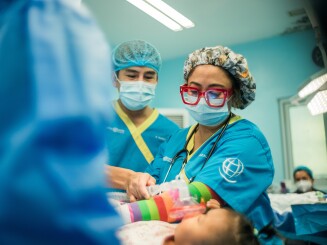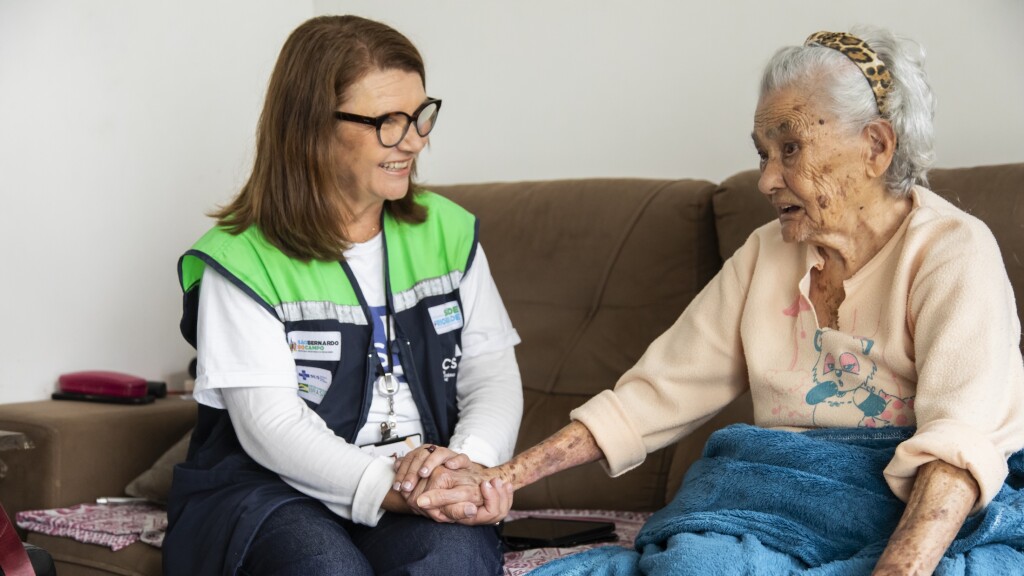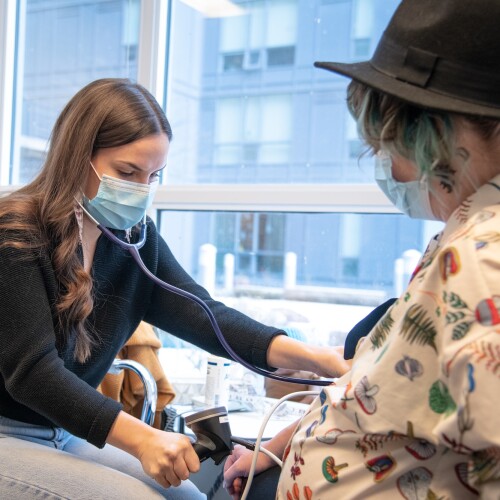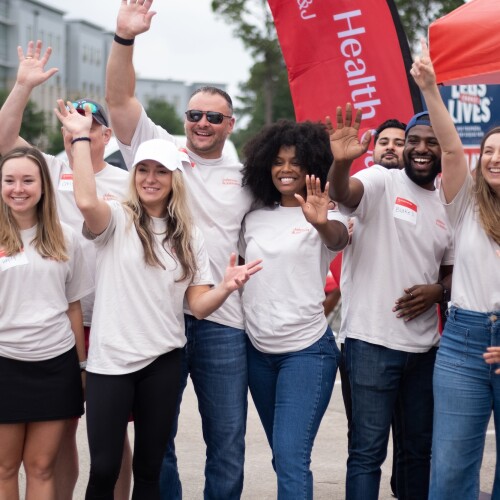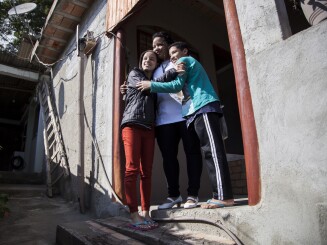- Home
- Our company
- Social impact
- Global health equity
- J&J CareCommunity
J&J CareCommunity
J&J CareCommunity, a global social impact platform from Johnson & Johnson, champions nurses and community health workers to advance access to quality care around the world.
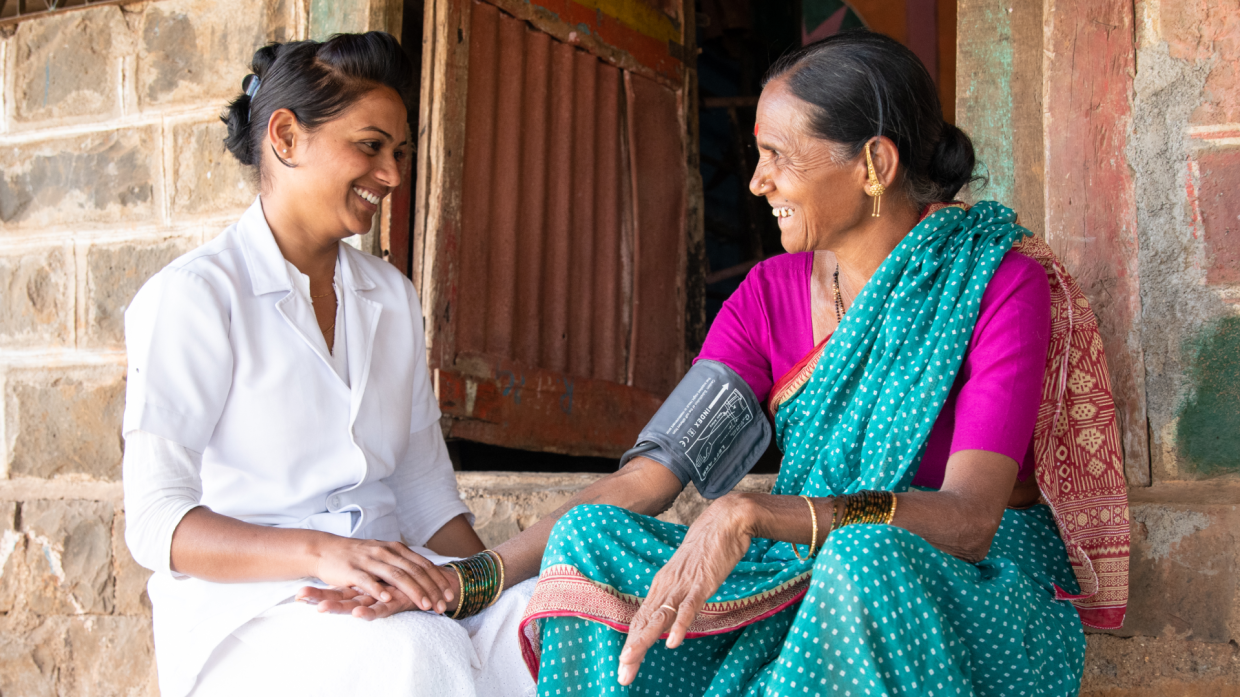
Johnson & Johnson expands efforts to champion the nursing workforce globally
New social impact platform J&J CareCommunity aims to collaboratively help address global nursing challenges
Our impact
J&J is closing the gap between communities and care through J&J CareCommunity. Building on our legacy, J&J CareCommunity is rooted in championing nurses and health workers, the heart of the care system, and advancing programs that improve access to quality care for communities worldwide.
2.3 million
Health workers reached through our efforts over the past three years
1 million
New nurses supported to enter the U.S. healthcare system over the past decade
40,000
Operating room and hospital staff trained in resource-limited settings in 2023 alone
2.6 billion
Doses of Vermox® donated since 2006, treating 100 million children and women for intestinal worms annually
50 million
Children vision screened through Sight for Kids since 2002 with Lions Club International Foundation
30,000
Employee volunteer hours with our partners to support community health in 2023
Our approach
Despite advancements in modern medicine, health inequities are deepening due to a gap in access to quality care globally. J&J CareCommunity collaborates through global partnerships and local efforts that connect communities to care and equip health workers to thrive.
Featured programs and collaborations
Lions Club International Foundation
Operation Smile
My Health Can’t Wait
Americares
Global Surgery Foundation
India TB-Free Urban Poor Communities Program
Kamili Organization
A Casa Dos Agentes Comunitários (House of Community Agents)
Stories of transforming care
J&J CareCommunity supports programs that champion an innovative, thriving health workforce and improves access to quality care for communities. Hear from nurses and community health workers about how together we are connecting more communities to care around the world.
Latest news
How Johnson & Johnson MedTech is helping people live, see and smile
Through J&J CareCommunity, Johnson & Johnson and the J&J Foundation are equipping health workers with the tools, training and support they need to expand access to specialized cardiac, vision and surgical care to help more people live, see and smile.
How Johnson & Johnson is working to get medications to people around the world who need them most
In the just-released 2024 Access to Medicine Index, the company ranks among the top 5 improving access to medicines.
A new collaboration to improve training and education of health workers globally
J&J made a $7 million grant to the Institut de France which will help the WHO Academy provide both online and in-person educational opportunities for health workers throughout their careers Training, education and support are needed to help address global shortage of health workers and close the gap between communities and care
Johnson & Johnson Reaches 50 Million Children Through Sight For Kids Program
Co-Founded with Lions Clubs International Foundation, Sight For Kids Expands to Provide Life-Changing Eye Health · Historic High: Largest-known, school-based eye health program serves record number of students · Expanding Reach: Atlanta, Georgia and Hong Kong added to Sight For Kids locations · Providing Access: Nearly 450 million children worldwide have a sight condition that needs treatment1
Five health workers who are changing care: How J&J is championing nurses and community health workers
J&J CareCommunity is empowering frontline health workers by equipping nurses and community health workers with the skills, resources and opportunities needed to strengthen global healthcare and expand access to quality care.
Supporting our communities
No single effort will bridge the gap in access to quality care, but we are playing our part. Access the following resources and information to learn more.
Connecting communities across the U.S. to care
J&J CareCommunity helps improve access to healthcare for under-resourced communities through strengthening local community health centers and community health events that improve access to health information and resources.
Elevating and empowering nurses
J&J CareCommunity champions the nursing profession by attracting and strengthening an innovative, thriving nursing workforce that improves quality care for communities.
Bring the best of J&J to support communities
J&J CareCommunity connects our J&J employees to use their unique skills and expertise to serve people and communities in need.
Our commitment to global health equity
At Johnson & Johnson, we are closing the gap between communities and care by enabling access to our medicines and technologies, championing nurses and health workers and working together with community-based organizations.
Johnson & Johnson Foundation
Johnson & Johnson Foundation is a registered charitable organization that reflects the commitment of Johnson & Johnson to use its size, scale and diversity to change lives and communities, advance care, and put better health within reach, aligned with its purpose to profoundly impact health for humanity.
The J&J CareCommunity newsletter
Subscribe to our newsletter for the latest news and important partner updates from Johnson & Johnson.
You are now leaving jnj.com.
This link will take you to a website outside of Johnson & Johnson, which is governed by its own privacy policy and terms of use. Click continue to proceed.
